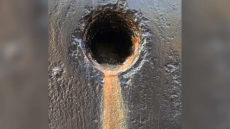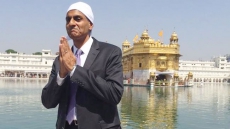A section of Indian-origin researchers based in the US, who have joined 51 Nobel laureates and over 27,000 academics from across the globe in denouncing President Donald Trump's travel ban, have warned against such prohibitions extending to any group of people.
On January 27, Trump signed an executive order banning citizens from seven Muslim-majority countries for 90 days, suspending all refugee entry to the US for 120 days, and indefinitely barring entry for Syrian refugees.
In response, over 20,000 faculty members from many of the most prestigious universities across the US, as many as 572 members of the US National Academy of Sciences and hundreds of award winning scientists, signed the "NoToImmigrationBan" petition, opposing the order, apprehending "the unrealistic conditions required for discontinuing the suspension make it very likely that it will turn into a permanent ban".
Dubbing it the "worst form of superstition that we have seen in recent times", veteran anthropologist Veena Das urged everyone to join against the ban.
"Scientists and scholars in India should also rally against the slow corrosion of intellectual autonomy that has been happening in India, perhaps slowly, but surely," Das, Krieger-Eisenhower Professor of Anthropology at the Johns Hopkins University, told IANS via email.

"Responsibility toward knowledge is not a national enterprise but one that will either nourish or corrode the human spirit. It is up to us to crush the rising tide of stupidity," she said.
Massachusetts Institute of Technology's (MIT) computer science and engineering professor Arvind, who has "outstanding colleagues and students" from Syria, Iran, Palestine, Egypt, Pakistan and India, many of whom are Muslims, questioned the justification of the order.
"It is a ban on Muslims only because Christians are explicitly excluded. Should all Muslims pay the heavy price of dashed dreams because of a few Muslim terrorists?"
"Indians should realise that such arbitrary bans can be extended easily to any group of people, for example, Indian Muslims or even all brown skinned people," Arvind, Johnson Professor of Computer Science and Engineering at MIT, told IANS in an email.
Apart from academics signing the petition, as many as 171 leading scientific, engineering and academic organisations in the US have called on Trump to rescind the executive order declaring it damaging to scientific progress, innovation and US science and engineering capacity.

Das, who says one reason for the dominance of US universities in the generation and dissemination of knowledge, was the "historical openness to scholars and scientists from other countries", believes universities will suffer enormously in tangible and intangible ways, in the age of networking.
"There is the larger question that looms on the horizon, which is that if policy is going to become so divorced from any facts on the ground, how will rational governance be possible," she questioned.
As an anthropologist, Das iterated concerns of the community, primary of which veers on the thought that as borders close down, there will be less people ready to go and do fieldwork in areas of the world that require "diligent attention" to know what is happening on the ground.
Arvind opined that the MIT (known for its diversity in faculty and students) and by implication the US, would lose its pre-eminence in science and technology if doors were closed to the scholars from any part of the world.

"Such a ban will cause more harm to America in the long run without increasing our safety. It is time to speak up to defend our Muslim colleagues to maintain scientific excellence in America," he said.
As a way out, Das said it is time for international NGOs and foundations in the fields of health and education, to step up their efforts.
"A lot will depend on what understanding of the situation emerges and the urgency with which these questions are addressed by leading institutions," Das observed.
"A democratisation of knowledge would be a very good thing but I am not sure that other countries in Europe or Asia of Africa or Latin America will be able to stem the rise of paranoia and shutting of boundaries," she added.




